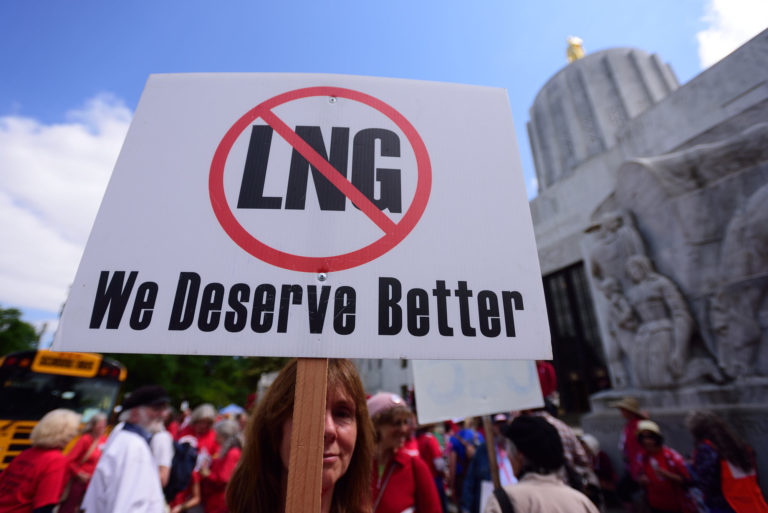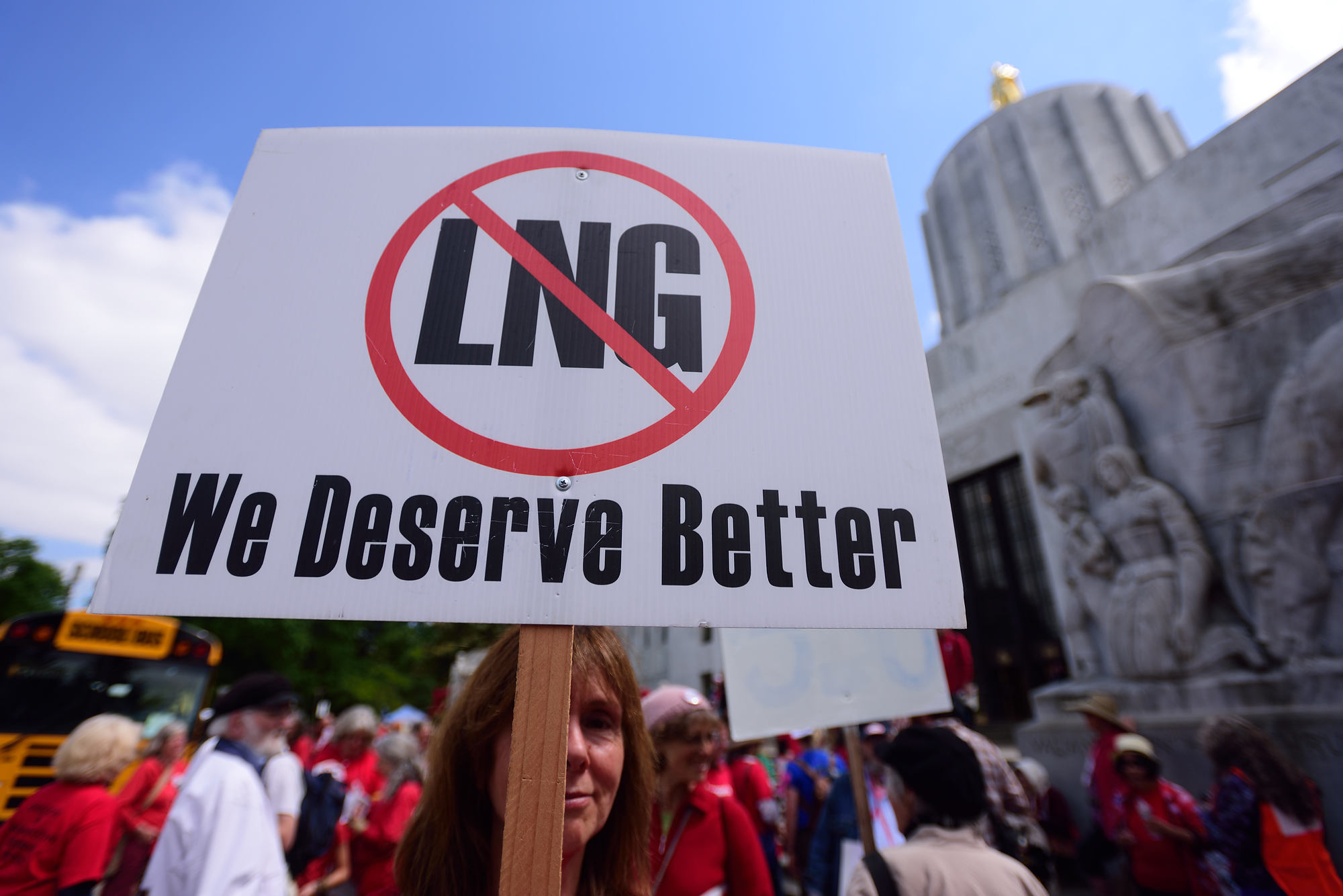
Fossil fuel advocates have been pushing the Jordan Cove liquefied natural gas (LNG) export project for more than a decade, and after two failed attempts, the Trump administration is giving them new hope. In a nearly unprecedented move, the Federal Energy Regulatory Commission (FERC) denied the project in 2016 after years of analysis. Water and fish advocates, local landowners, public land defenders, renewable energy and oyster businesses, and climate organizers were vindicated by a decision that the company did not show enough public need to justify the impacts.
Then in March of this year, the CEO of Veresen, a Canadian gas company, met with President Trump to sell him on the rejected export project. Then oil and gas executives from the fracking fields of Colorado met with administration officials. They left those meetings with enthusiasm to try again under this fossil fuel-obsessed administration, and they recently re-applied to FERC for project approval.
The Jordan Cove proposal includes a 230-mile pipeline that would cut through more than 400 streams, many of which serve as critical habitat for the iconic and endangered Coho salmon, mow down publicly owned old-growth forests, and threaten hundreds of property owners with eminent domain. The project would also construct an export terminal on the Oregon coast that would become the largest emitter of greenhouse gases in the state.

Together, the pipeline and terminal would create an unprecedented system that would allow fracked gas from the Rocky Mountains to be exported from the west coast of the United States. Gas companies that are fracking in western states are chomping at the bit to sell gas to Asian countries that are willing to pay more than Americans currently do.
After a brief period of celebration last year when FERC denied the project, the coalition has revved up again for another round of fighting for a clean future. Rogue Riverkeeper, property rights advocates, flyfishers, and climate activists have been steadfastly opposing the Jordan Cove project for years.
“Using Oregon’s public water resources on antiquated fossil fuel infrastructure — on a project already determined to have more costs than benefits — harms our rivers and the Oregonians who depend on them,” said Stacey Detwiler of Rogue Riverkeeper. “Together with local landowners, fishermen, community activists, and others we will continue to fight every step of the way for clean water and a sustainable energy future in southern Oregon and across our state.”
The coalition to stop gas exports also has some unusual bedfellows. The Industrial Energy Consumers of America (IECA), an industry group that represents large domestic consumers of natural gas, has opposed Jordan Cove due to the harmful impacts that gas exports inflict on American manufacturing.
In a letter to the U.S. Departments of Energy and Commerce last month, the IECA wrote, “The fact is that utilizing natural gas in manufacturing, as compared to exporting it, creates eight times more jobs, twice the direct value added per year and 4.5 times the direct construction jobs.” And in an earlier letter, IECA President Paul Cicio wrote, “In the end, it’s going to be every homeowner, every farmer buying fertilizer, and every manufacturer trying to create jobs who is going to be hurt by this.”
Waterkeeper Alliance is proud to support Rogue Riverkeeper and other member Waterkeeper Organizations that are fighting to stop dangerous fossil fuel projects and working to set us on a safer course for future generations. To stay updated on how you can help stop Jordan Cove LNG, visit: www.nolngexports.org
* Photos by Alex Milan Tracy